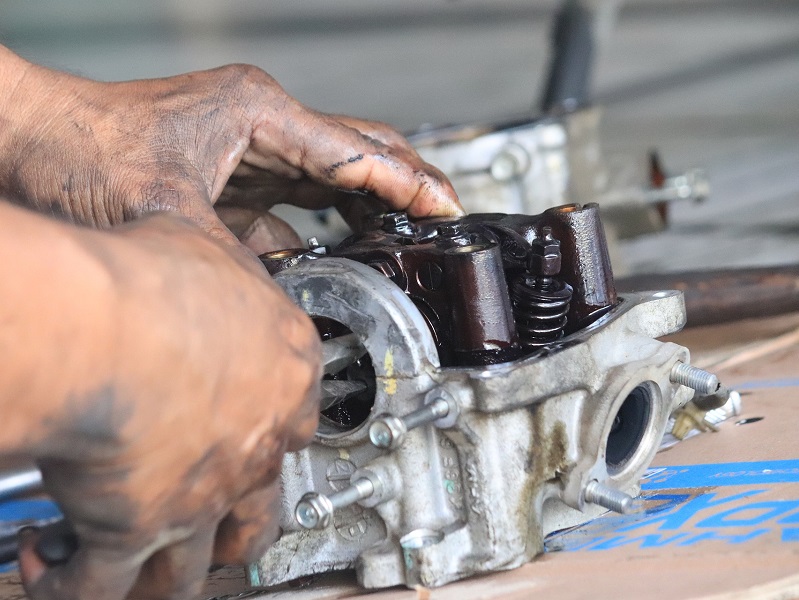
Since 2021, our product replacement program has helped more than 150 automotive repair shops switch out solvent-based degreasers for safer alternatives. What's even better? The program is still accepting applications. Qualifying auto shops could receive up to $10,000 in reimbursement.
Automotive maintenance facilities commonly have products with toxic chemicals like methanol, toluene, or hexane that pose environmental and human health risks. Degreasers are one of these products. They’re used for cleaning greasy, oily, or grimy engines and auto parts. They also contain a host of chemicals that can harm human and environmental health and become dangerous waste once the product has been used.
In late 2021, the Washington Department of Ecology reimbursed the state’s first auto shop for switching to a water-based parts washer, replacing multiple cases of aerosols.
“There’s a variety of products on the market, and it’s hard to tell what’s safer or not,” said Thatcher Montgomery, lead for Ecology’s automotive degreaser replacement program. “That's why we encourage the switch to EPA Safer Choice certified products—someone else has already done the hard work of figuring out what's safer.”
Reimbursement amounts are based on the safety and environmental impacts of the alternative products. Most water-based cleaners are eligible for up to $5,000 of reimbursement, and EPA Safer Choice certified products are eligible for up to $10,000.
Shops and businesses, non-profits, and local governments in Washington that work on motor vehicles intended for use on public roads are eligible to apply if they service at least one of the following:
- Cars
- Trucks
- Buses
- Semi-trucks
- Motorcycles
Automotive repair businesses can start by filling out an application. We will contact applicants, typically within five business days. Businesses should wait to purchase new equipment until their application is approved and they receive a voucher. We are accepting applications on an ongoing basis. For more information, contact Thatcher Montgomery at thatcher.montgomery@ecy.wa.gov or visit our automotive degreaser replacement program webpage.
The Washington Legislature established our Product Replacement Program in 2019 to target the most harmful chemicals used in consumer products and services by directly compensating Washington small businesses that switch to safer alternatives.

